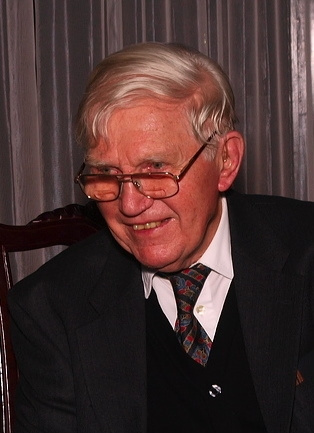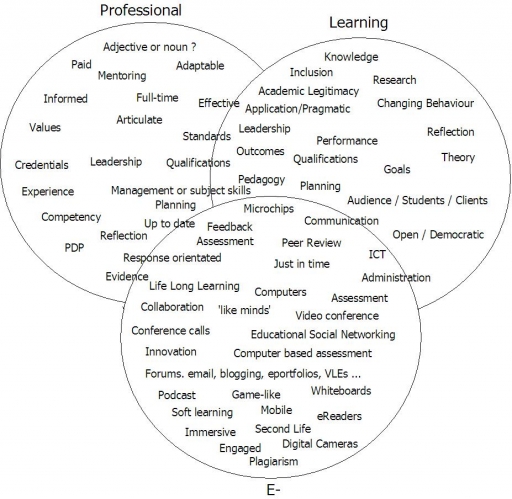1. Are we hard-wired to how we conceptualise ideas?
2. Does this help or hinder the way we use eLearning tools?
3. Will children, say, 50 years from now, look at paper and pen in the same way as a person does now when they take a first look at computer?
4. Are we at some 'transition' point, and if we are, what does this mean?
My tutor in H808 asked me this on 12th September.
I feel far better able to reply now after four months of H808 and some fortuitous reading, though I did respond at the time. My forum thread exchange then and reflection on it today will form part of my ECA.
It surprises me that I have subscribed to a magazine at all, but I find the New Scientist offers plenty on our e-world upon which to reflect and insights to all kinds of other things that tickle my brain.
It matters that you read broadly.
The French Film Director Francois Truffaut was a firm believer of reading everything and anything that caught your attention. He’d have loved the web. It matters that you follow what the web offers, then browse the shelves for magazines at the newsagent on the forecourt of your station.
My favourite button that has been crucial to the longevity of my blog (elsewhere) for the last seven years is ‘Enter@Random.’
We don’t think in chronological order.
thinking is a mess, it selects ideas and makes things up sing different sides and corners and crooks and crannies of our brains. I unplugged the calendar on my diary in year one and replaced it with 12 themes that have now grown to 37. For a period there were 37 blogs, but try managing that, to say you end up with a split personality is an understatement.
My tutor put it to me (and us) the H808 Tutor Group:
1. Are we hard-wired to how we conceptualise ideas?
Dr Vilayanur S Ramachandran thinks so. We have a unique capacity to think in metaphors. This matters. It is this ability that makes us creative, allows us to be inventive, it is what makes us human beings.
Read all about in the New Scientist.
Quoted here within the 200 word count permission for a student quote.
Added as for student reading in a non-commercial academic context having read the copyright permissions.
Ramachandran is particularly interested in metaphor because it ties in neatly with his previous work on synaesthesia - a kind of sensory hijack, where, for example, people see numbers as colours or taste words. "Metaphor is our ability to link seemingly unrelated ideas, just like synaesthesia links the senses," he says.
After spending years working with people who have synaesthesia, he believes "pruning genes" are responsible. In the fetal brain, all parts of the brain are interconnected, but as we age, the connections are pruned. If the pruning genes get it wrong, the connections are off. "If you think of ideas as being enshrined in neural populations in the brain, if you get greater cross-connectivity you're going to create a propensity towards metaphorical thinking," he says.
I don't have synaesthesia, neither does Ramachandran, but he points out to me the strangeness of asking why, say, the cheddar cheese in your sandwich is "sharp". It's true, cheese isn't sharp, it's soft, so why do I use a tactile adjective to describe a gustatory sensation? "It means our brains are already replete with synaesthetic metaphors," he says. "Your loud shirt isn't making any noise, it's because the same genes that can predispose you to synaesthesia also predispose you to make links between seemingly unrelated ideas, which is the basis of creativity."
www.NewScientist.com.
Thomson (2010)
Of the 12 photographs in this issue as many as 8, I think, are from the Getty Image bank. I wonder if one day, especially if I’m reading this on an iPad the images will move, rather as the paints are alive in the background of a Harry Potter movie. It wouldn’t take much for a photography to video as well as, or instead of taking a photograph. Indeed, the BBC now permit directors to generate HD TV footage using digital SLR cameras … the lenses are better, the creative choices wider.
Interesting.
2. Does this help or hinder the way we use eLearning tools?
How we use the web, let alone e-learning tools is in its infancy. We are still putting old ways online, still making web-pages into slide shows and calling them immersive learning. Gaming may change this, with the budget. Better, faster tools will enabled more. Collaboration on world wide wikis with like minds, and great minds, contributing will speed up the rate of change.
We’ll think in the same metaphors though, share and reinforce new metaphors and then some Leonardo da Vinci of the 21st century will come along and break it apart. Though we may not appreciate their insights at all.
Mobile learning, smart-phone learning on the move, or whatever you want to call it should shake things up. At first this will be, and is, the same old stuff sent to your phone, basic card to card Q&A even if it includes a bit if video or an animated graph.
I want learning projected onto the back of my scull, I want it in my head, not online or in a device. I want interactions with specific parts of my brain. I want my brain duplicated so that I can take more lessons at the same time, to learn multiple languages and to take several degrees simultaneously.
3. Will children, say, 50 years from now, look at paper and pen in the same way as a person does now when they take a first look at computer?
It is extraordinary the relationship between our minds and out limbs, or arms and finger tips. With training we can sight read a score and play complex musical pieces, we can scroll, cut, edit, fly and colourise images into a piece of drama that has us crying, or heads in our hands and we can type, like the clappers.
We can draw too, and sculpt, and swim and dance and do gymnastics.
Our relationship with the nerves in our body is a complex one. As for handwriting, our relationship with fountain pens, marker pens and pencils? It ought to be a skill still taught at school, there need to be handwriting competitions as there once were … even if they are tied into art classes and design.
How different is a stylus on a tablet to a piece of chalk on a slate?
I implore my children to write and draw. An illegible Christmas list is no list at all. They’d type, they do type. Yet how backwards is a QWERTY keyboard?
4. Are we at some 'transition' point, and if we are, what does this mean?
Yes. And I mean to be part of it.
We have reached the Tipping Point.
A book a read if I recall in 2001 when we thought we were approaching a tipping point, actually we were reaching the point at which the first e-bubble would burst. First and last? These things go in cycles, whatever the politicians do to stymie human nature. Greed and regret, progress, reflection, reinvention … then we do it all over.
We’re not even less violent than we were at the times of the Viking raids.
Meandering? A stream of consciousness? Reflection? Regurgitation?
All of this, and it all matters. You don’t have to read it, and you probably haven’t. This is here for me to find when I need it in seven months or seven years time.
It is remarkable how your views change; so it matters to have what you originally thought in front of you. There are memories I have that haven’t just been reworked over the decades, but have become different events. This isn’t simply age, though that has much to do with it, I view what I did as a child or teenager as I observe my own children today, the difference is, I can’t influence the behaviour and actions of my younger self, though I can, I hope listen to and guide my own children to actions and decisions they will feel comfortable with in the years to come
REFERENCE
Thomson, H (2010) V. S. Ramachandran: Mind, metaphor and mirror neurons 10 January 2011 by Helen Thomson Magazine issue 2794.

